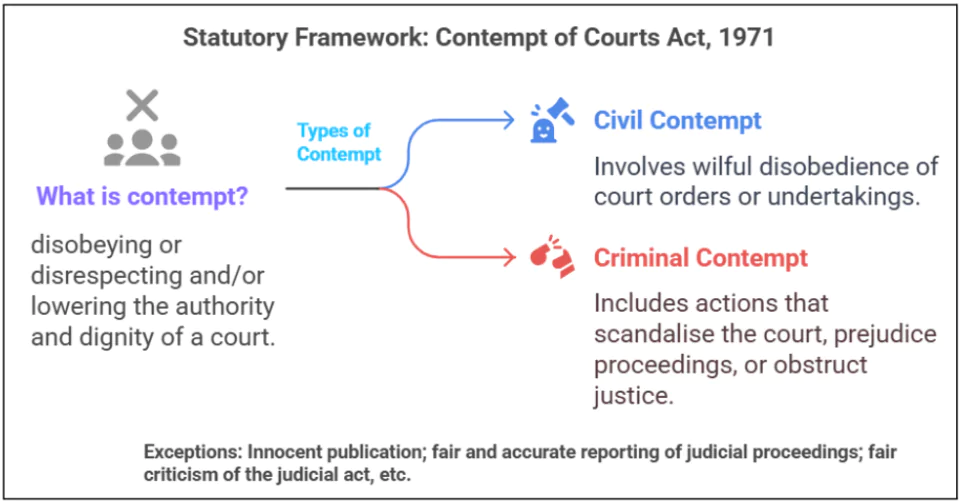Recently the Supreme Court in Nandini Sundar & Ors vs State of Chhattisgarh ruled that legislatures making laws cannot be held in contempt, reaffirming the constitutional separation of powers.
- The observation was made while disposing of a 2012 contempt plea filed against Chhattisgarh Auxiliary Armed Police Force Act, 2011, which regularised Special Police Officers (SPOs) despite the Supreme court’s earlier directions.
- Acknowledging the ongoing violence in Chhattisgarh, the Court urged both the State and Union governments to take concrete steps for peace and rehabilitation.
- The order cited Article 355 of the Constitution, emphasizing the duty of governments to ensure safety and stability in affected regions.
Key Highlights of SC Ruling
- The Court stated that State Legislatures possess plenary powers to enact laws, and as long as a law is not declared unconstitutional, it remains valid and enforceable.
- Passing a law whether before or after a court order does not amount to contempt of court, even if the law appears to counter a judicial directive.
- If any law is unconstitutional, the correct procedure is to challenge it in a constitutional court to examine the constitutionality or legislative competence of laws.
- The Court emphasized the doctrine of separation of powers, stating that legislatures have the right to enact, amend, or repeal laws, even in response to judicial rulings.
- The Doctrine is part of the checks and balances essential in a constitutional democracy like India.
About Doctrine of Separation of Powers in the Indian Constitution
- The Doctrine of Separation of Powers refers to the division of government responsibilities into three distinct branches, Legislature, Executive, and Judiciary, ensuring that no branch oversteps its authority.
- Constitutional Basis:
- Article 50 (DPSP): Directs the State to separate the judiciary from the executive in public services of the State.
- Articles 121 and 211: Prevents legislatures (Parliament and state Legislature) from discussing judicial conduct, protecting judicial independence.
- Articles 122 and 212: Bar courts from inquiring into legislative proceedings of Parliament and state Legislature preserving parliamentary privilege.
- Article 245–255: Define legislative powers of Parliament and State Legislatures.
- Article 13 and Article 32/226: Empower the judiciary for Judicial review of law and strike down unconstitutional laws, ensuring checks and balances.
- Not a Water Tight Separation : Indian courts have held that while absolute separation is not possible, a system of checks and balances must be maintained.
- In Kesavananda Bharati v. State of Kerala (1973), the separation of powers was recognised as part of the basic structure doctrine.

Conclusion
The Supreme Court reiterated that legislative functions are distinct and protected under the Constitution. Passing a law cannot be equated to contempt; instead, it must be tested on the grounds of constitutional validity and legislative competence through proper legal channels.
![]() 4 Jun 2025
4 Jun 2025

